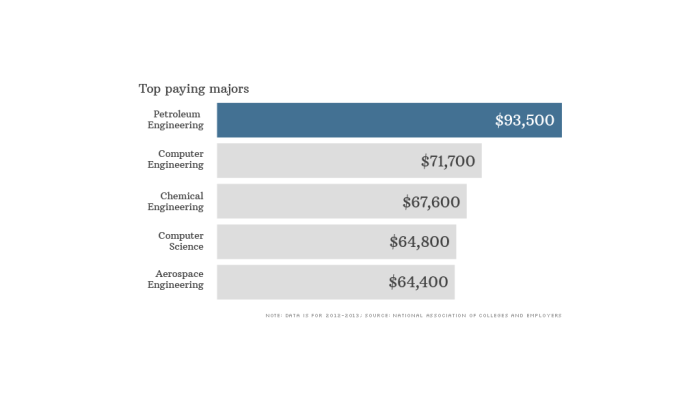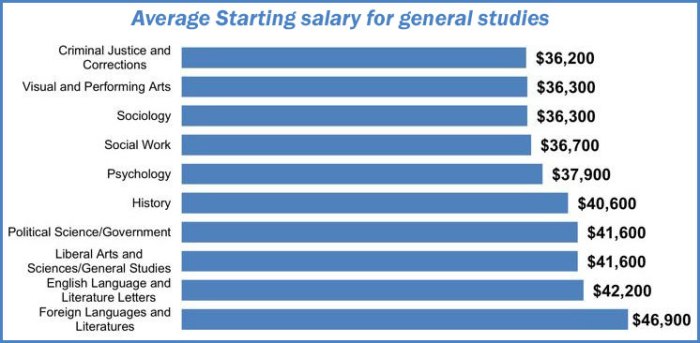How to network while pursuing a degree in college is not just a catchphrase; it’s a vital skill that opens doors to opportunities and connections that can shape your future. In today’s competitive landscape, having a degree is only part of the equation; the relationships you build during your college years can significantly impact your career trajectory. From internships to mentorships, the benefits of networking are manifold, enabling you to leverage your academic achievements into real-world success.
As you embark on this journey, it’s essential to understand various networking strategies that can enhance your college experience. By engaging with peers and professors, attending campus events, and utilizing social media effectively, you can create a robust network that supports your ambitions. This guide will explore the importance of networking, practical strategies to build connections, and the resources available to you on campus, arming you with the tools to thrive.
Importance of Networking in College
Networking while pursuing a degree in college is an essential aspect of personal and professional development. Building relationships with peers, professors, and industry professionals during this formative period can significantly impact one’s career trajectory. By establishing a solid network, students gain access to a wealth of resources, advice, and opportunities that may not be available otherwise. Networking is particularly beneficial for gaining internship opportunities that are often pivotal for career advancement.
Internships serve as a bridge between academic learning and real-world experience, allowing students to apply their knowledge in practical settings. Many organizations prefer candidates who have relevant experience, and a strong network can pave the way for such experiences.
Internship Opportunities Through Networking
Internships are critical for enhancing employability and gaining insights into specific industries. Engaging in networking can lead to discovering internship roles that are not widely advertised. Here are some key points highlighting the importance of networking in securing internships:
- Access to Hidden Job Markets: Many internships are filled through word-of-mouth and referrals. Networking increases the likelihood of learning about these opportunities before they are publicly advertised.
- Building Relationships with Industry Leaders: Connecting with professionals in the field can provide insider knowledge about companies that are hiring interns, along with tips on how to make a strong application.
- Gaining Recommendations: A robust network can lead to personal recommendations, which are often more impactful than standard applications. Having someone vouch for your skills and character can set you apart from other candidates.
- Mentoring Opportunities: Networking may lead to mentorship relationships where experienced professionals can guide you in your career path, including insights on internship applications and interview preparations.
Numerous successful professionals credit their college networking experiences as fundamental to their career paths. For instance, former President Bill Clinton often speaks about the role of networking at Georgetown University, where he established connections that helped him navigate politics. Similarly, Sheryl Sandberg, COO of Facebook, emphasized the power of relationships formed during her time at Harvard and how they shaped her professional journey.
These examples underscore the critical impact of networking in cultivating future career opportunities.
Strategies for Effective Networking
Networking in college is not merely about exchanging business cards; it is a strategic approach to building relationships that can flourish into professional opportunities. Engaging with peers and professors creates a foundation for your future career. Here are some effective strategies to enhance your networking experience during your college years.
Connecting with Peers and Professors
Establishing connections with both peers and professors can significantly enrich your academic experience and career prospects. Leveraging these relationships can lead to collaborative projects, internships, and job referrals.To connect with peers:
1. Join Student Organizations
Participate in clubs related to your major or interests. This environment fosters collaboration and friendship, making it easier to network.
2. Study Groups
Form or join study groups where you can share knowledge and resources, while also building rapport with fellow students.
3. Attend Campus Events
Be present at various events such as lectures, social mixers, and workshops, where you can meet classmates in a more casual setting.To connect with professors:
1. Office Hours
Make the most of professors’ office hours. This one-on-one interaction can create a lasting impression and open doors for mentorship.
2. Class Participation
Engage actively in class discussions. Ask thoughtful questions that can highlight your genuine interest in the subject matter.
3. Research Opportunities
Inquire about research projects that you can assist with. This hands-on experience not only boosts your resume but also strengthens your academic relationship with faculty.
Networking Events and Workshops
Participating in networking events and workshops is essential for gaining exposure to industry practices and expanding your professional circle. Your campus likely hosts various initiatives designed to connect students with industry professionals.Here is a list of typical networking events and workshops you might find:
- Career Fairs: Large events where employers and job seekers converge, allowing for direct interactions.
- Guest Lectures: Sessions where industry experts share insights, providing opportunities for questions and discussions.
- Workshops on Resume Writing and Interview Techniques: These skill-building sessions can prepare you for the job market.
- Networking Mixers: Informal gatherings intended for students and alumni to connect over shared experiences and interests.
- Industry Panels: Events featuring multiple professionals discussing trends and challenges in their fields, encouraging networking among attendees.
Engaging in these activities not only builds your network but also enhances your understanding of your chosen field.
Choosing the right degree program can be a daunting task, but it’s essential for your future career. To help streamline your decision-making process, consider factors like your interests, job market trends, and potential earnings. For a comprehensive guide, check out this article on how to choose the right degree program for me. The right education can set the stage for a fulfilling career.
Utilizing Social Media for Professional Connections
In today’s digital age, social media serves as a powerful tool for networking. It allows for connections beyond geographic limitations, enabling you to engage with professionals in your field.Consider the following strategies for effective social media networking:
1. LinkedIn
Create a well-crafted profile highlighting your skills and experiences. Connect with classmates, professors, and industry professionals, and engage with their content to stay visible.
2. Twitter
Follow industry leaders and engage in conversations. Participate in relevant hashtags and Twitter chats to build a presence in your field.
3. Facebook Groups
Join groups related to your major or career interests. These platforms often share valuable resources and job postings.
4. Instagram
Use this platform to showcase personal projects or internships relevant to your field. Engaging with posts from professionals could lead to valuable interactions.By strategically utilizing social media, you can broaden your reach and establish valuable connections that might lead to career opportunities.
Building Professional Relationships
Establishing meaningful professional relationships is crucial for students pursuing a degree in college. These connections can lead to mentorship opportunities, internships, and job placements that are invaluable as you transition from academia to the workforce. In this section, we will explore the key characteristics of strong professional relationships, how to approach industry professionals at networking events, and tips for maintaining these connections for long-term benefits.
Key Characteristics of Strong Professional Relationships
Strong professional relationships are built on a foundation of trust, mutual respect, and clear communication. Understanding these characteristics is essential for any student looking to establish their network effectively.
- Trustworthiness: A reliable professional relationship is built on honesty and integrity. Demonstrating your commitment and reliability encourages others to engage with you.
- Mutual Respect: A successful relationship requires valuing each other’s opinions, skills, and experiences. This respect fosters a positive environment for collaboration and exchange of ideas.
- Effective Communication: Clear and open communication is vital. Listening actively and articulating your thoughts clearly can strengthen connections and prevent misunderstandings.
- Reciprocity: Professional relationships should not be one-sided. Offering assistance, sharing resources, and providing support in return for help enhances the relationship.
- Shared Interests: Finding common ground, whether in academic pursuits or professional aspirations, can create a stronger bond and facilitate engaging discussions.
Approaching Industry Professionals at Events
When attending networking events, approaching industry professionals can initially seem daunting, but with the right strategies, it becomes more manageable. Begin by preparing a brief introduction that includes your name, your field of study, and your career goals. This will help you convey your purpose clearly. Making eye contact and presenting a confident body language enhances your approachability. Engage in active listening during conversations, allowing the professional to share their insights and experiences.
If you’ve earned a psychology degree, you might be wondering what career paths are available to you. This degree opens doors to various fields, including counseling, marketing, and human resources. For detailed insights into your options, explore this resource on what jobs can I get with a psychology degree. Understanding these possibilities can help you navigate your professional journey effectively.
This not only shows respect but also opens up opportunities for follow-up questions that can deepen the discussion.
“Be genuinely interested in others; it’s the best way to foster connections that matter.”
Maintaining Connections After Initial Meetings
Once you have established a connection, it is essential to nurture that relationship. Here are some effective tips for maintaining connections with professionals you’ve met.Start by sending a personalized follow-up message within 24 to 48 hours after your initial meeting. Express your gratitude for their time and mention something specific from your conversation to remind them of your interaction. Regularly engage with them through social media platforms like LinkedIn, where you can share relevant articles, comment on their posts, or congratulate them on their achievements.
This keeps the connection alive and shows that you are invested in their professional journey.Additionally, consider scheduling periodic check-ins, whether through email or in-person coffee meetings. Keeping the lines of communication open and showing consistent interest can lead to long-lasting professional relationships.By incorporating these strategies into your networking efforts, you will not only build a robust professional network but also cultivate relationships that can significantly impact your career trajectory.
Utilizing Campus Resources: How To Network While Pursuing A Degree In College

Pursuing a degree in college not only involves academic achievement but also the strategic use of available resources to enhance your professional network. Most colleges and universities offer a range of career services and student organizations designed to help students make valuable connections. Leveraging these resources can significantly improve your networking experience and career readiness.
Leveraging Career Services for Networking Opportunities
Career services play a pivotal role in connecting students with potential employers and industry professionals. These departments often host events, workshops, and job fairs, providing a platform for students to meet and engage with recruiters. Taking advantage of these offerings can help you build a robust network.Career services typically offer:
- Workshops and Seminars: These events cover topics like resume writing, interview techniques, and networking strategies, and often feature guest speakers from various industries who share insights and offer networking opportunities.
- Career Fairs: Major events where employers actively seek to engage students for internships and job opportunities. Attending these fairs allows you to make direct contact with industry professionals.
- Individual Career Counseling: One-on-one sessions can help you tailor your networking approach and refine your elevator pitch, making your introductions more effective.
Student Organizations that Facilitate Networking
Participating in student organizations is an excellent way to expand your network while pursuing your degree. Many organizations are specifically designed to connect students with peers and professionals in their field of study or interest. Here are notable student organizations that facilitate networking:
- Professional Associations: Groups specific to various industries (e.g., business, engineering, healthcare) that provide access to networking events, guest lectures, and mentorship opportunities.
- Student Government: Offers leadership opportunities and connections with faculty and administration, which can lead to internships and job opportunities.
- Academic Clubs: Groups centered around specific disciplines (like finance, marketing, or computer science) that often invite industry speakers and host networking events.
- Cultural and Diversity Organizations: These groups promote inclusivity and often host events that help expand your network across diverse industries and backgrounds.
Engaging with Alumni Networks Effectively
Connecting with alumni can open doors to mentorship, job opportunities, and insider industry knowledge. Alumni networks are invaluable resources for current students looking to build professional relationships.To engage effectively with alumni networks, consider the following strategies:
- Attend Alumni Events: Many universities host events specifically for alumni and students. Attending these gatherings can help you meet graduates who are eager to share their experiences and advice.
- Join Alumni Associations: Becoming a member enables you access to exclusive networking events, newsletters, and platforms where alumni connect and share job openings.
- Utilize Social Media: Platforms like LinkedIn are powerful tools for connecting with alumni. Engage with their posts and reach out with personalized messages to initiate conversations.
- Request Informational Interviews: Alumni often appreciate when students reach out for advice. A brief meeting where you ask about their career journey can lead to valuable insights and potential job leads.
Overcoming Networking Challenges
Networking can be a daunting task for many college students, particularly for those who identify as introverts or are unfamiliar with the landscape of professional interactions. Despite the challenges, effective networking is essential for building connections that can lead to valuable opportunities. This section focuses on strategies to navigate these challenges and cultivate a strong professional network during your college years.
Strategies for Introverts to Network Effectively, How to network while pursuing a degree in college
Introverts may find networking overwhelming, but there are several strategies they can employ to make the process more manageable and effective. Emphasizing quality over quantity is crucial for introverts, as they often thrive in one-on-one settings. Here are effective strategies to enhance networking efforts:
- Prepare in Advance: Having a few conversation starters can alleviate anxiety. Topics can include recent events in your field of study, mutual connections, or shared interests.
- Utilize Social Media: Platforms like LinkedIn allow introverts to connect with professionals and engage in discussions from the comfort of their own space. Active participation in relevant groups can help build visibility.
- Focus on Listening: Introverts excel at listening, which can be a powerful networking tool. By asking open-ended questions, they can encourage others to share more, creating a meaningful connection without the pressure of constant self-promotion.
- Attend Small Gatherings: Choosing smaller events or workshops over large networking functions can create a more comfortable atmosphere for introverts to engage with others.
Common Networking Pitfalls and How to Avoid Them
When networking, students can fall into common traps that hinder their efforts. Being aware of these pitfalls can help you steer clear of them, ensuring your networking endeavors are fruitful. Key pitfalls include:
- Failing to Follow Up: After making a connection, it is crucial to follow up with a thank you note or a message expressing interest in staying in touch. Neglecting this step can leave a negative impression.
- Overly Aggressive Networking: Approaching contacts with a transactional mindset can be off-putting. Focus on building relationships rather than simply seeking immediate benefits.
- Not Being Authentic: Authenticity is vital in making genuine connections. Trying to present oneself in an overly polished manner can come off as insincere.
- Ignoring Your Network: Once connections are made, it is important to maintain them. Regular communication can keep relationships alive and beneficial.
Handling Rejection or Lack of Response from Contacts
Experiencing rejection or receiving no response from contacts can be disheartening. However, handling these situations with grace is essential for maintaining professionalism and resilience. Here are strategies to cope with these instances:
- Don’t Take It Personally: Rejection is a common aspect of networking. Professionals often have busy schedules, and a lack of response may not reflect your value.
- Seek Feedback: If appropriate, ask for feedback on your approach or message. This can provide insights for future interactions and improve your networking skills.
- Keep Trying: Persistence is key in networking. Continue reaching out to others and expand your search for connections within different circles.
- Reflect and Adjust: Use unresponsive contacts as a learning opportunity. Consider refining your messaging or approach based on what you learn through trial and error.
Building a robust professional network during college requires overcoming challenges with strategic thinking and resilience. Embrace the process, and remember that each interaction is an opportunity for growth.








